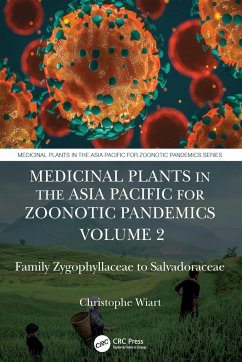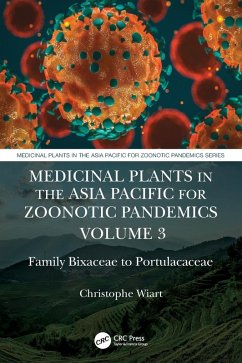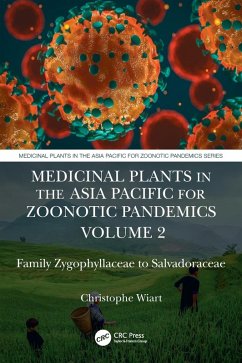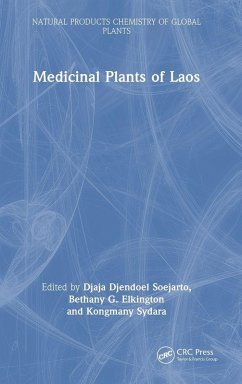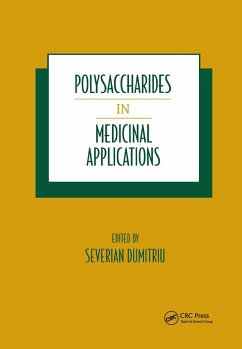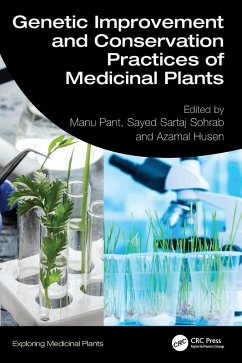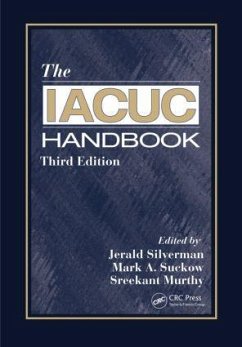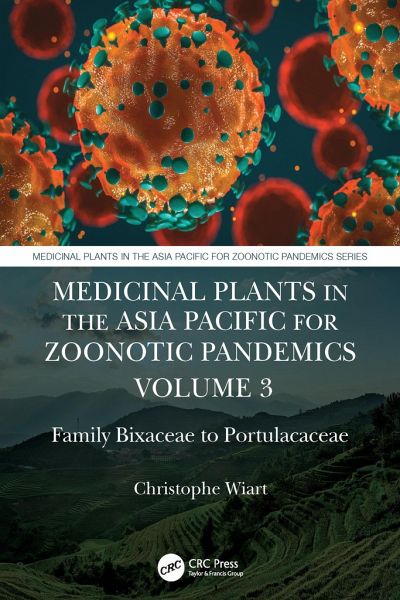
Medicinal Plants in the Asia Pacific for Zoonotic Pandemics, Volume 3
Family Bixaceae to Portulacaceae
Versandkostenfrei!
Versandfertig in 1-2 Wochen
131,99 €
inkl. MwSt.
Weitere Ausgaben:

PAYBACK Punkte
66 °P sammeln!
Medicinal Plants in the Asia Pacific for Zoonotic Pandemics provides an unprecedented, comprehensive overview of the phylogeny, botany, ethnopharmacology, and pharmacology of more than 100 plants used in the traditional systems of Asia and Pacific medicine for the treatment of microbial infections. It discusses their actions and potentials against viruses, bacteria, and fungi that represent a threat of epidemic and pandemic diseases, with an emphasis on the molecular basis and cellular pathways. This book presents for each plant the scientific name, the botanical classification, traditional me...
Medicinal Plants in the Asia Pacific for Zoonotic Pandemics provides an unprecedented, comprehensive overview of the phylogeny, botany, ethnopharmacology, and pharmacology of more than 100 plants used in the traditional systems of Asia and Pacific medicine for the treatment of microbial infections. It discusses their actions and potentials against viruses, bacteria, and fungi that represent a threat of epidemic and pandemic diseases, with an emphasis on the molecular basis and cellular pathways. This book presents for each plant the scientific name, the botanical classification, traditional medicinal uses, active chemical constituents, and pharmacology. This volume is a critical reference for anyone involved in the discovery of leads for the development of lead molecules or phytopharmaceutical products for the prevention or treatment of pandemic viral, bacterial, or fungal infections. FEATURES Includes phylogenetic presentation of medicinal plants and a chemotaxonomical rationale of antiviral, antibacterial, and antifungal actions Discusses chemical structure-activity relationship, pharmacokinetics, and oral bioavailability of antimicrobial principles Introduces the molecular mechanism of natural products on viruses, bacteria, and fungi Contains a selection of botanical plates and useful bibliographic references This book is a useful research tool for postgraduates, academics, and the pharmaceutical, herbal, and nutrition industries. Medicinal Plants in the Asia Pacific for Zoonotic Pandemics includes commentary sections that invite further research and reflection on the fascinating and timely subject of the development of leads or herbals from Asia-Pacific medicinal plants to safeguard humanity against the forthcoming waves of viral, bacterial, or fungal pandemics. This book is an ideal reference text for medicinal plant enthusiasts.




